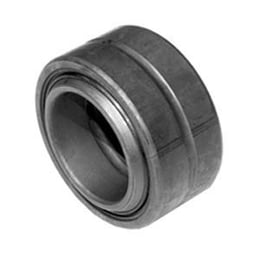Anti-counterfeiting: A leave to appeal granted to Supreme Court
09.02.2018February 9, 2018
Schaeffler Technologies GmbH & Co. Kg. Ina has been granted leave to appeal to the highest instance, the Supreme Court of Finland, in a dispute concerning an alleged breach of the INA ball bearing trademark. The granting of leave to appeal on 20 December 2017 is particularly significant: it is the first time in 15 years that this has happened in an anti-counterfeiting case in Finland.
The case is important in drawing a line between what can be deemed the use of a trademark for business purposes and what can be viewed as shipping and warehousing operations, when interpreting the regulations set by the legislation on trademark infringements. The leave to appeal involves a trademark dispute, which began in 2011, over counterfeit INA ball bearings seized by Customs. The German manufacturer of INA ball bearings demanded the destruction of the fake ball bearings seized by Customs, to prevent them from entering the markets. Customs nevertheless mistakenly released the counterfeit products to the defendant, who stored them at home before shipping them onwards to Russia. The injured party demanded that the defendant be punished for an intellectual property offense and convicted of trademark infringement. The District Court of Helsinki dismissed the criminal charges in the case, but found the defendant guilty of trademark infringement. The defendant referred the judgement on trademark infringement to the Court of Appeal, which overturned the decision of the District Court.
The leave to appeal involves a trademark dispute, which began in 2011, over counterfeit INA ball bearings seized by Customs. The German manufacturer of INA ball bearings demanded the destruction of the fake ball bearings seized by Customs, to prevent them from entering the markets. Customs nevertheless mistakenly released the counterfeit products to the defendant, who stored them at home before shipping them onwards to Russia. The injured party demanded that the defendant be punished for an intellectual property offense and convicted of trademark infringement. The District Court of Helsinki dismissed the criminal charges in the case, but found the defendant guilty of trademark infringement. The defendant referred the judgement on trademark infringement to the Court of Appeal, which overturned the decision of the District Court.
The case will now continue in the Supreme Court
Leave to appeal to the Supreme Court was sought against the ruling of the Helsinki Court of Appeal, in May 2016. The Supreme Court granted leave to appeal in December 2017, and the hearing of the case will continue in the near future.
According to the Supreme Court’s grounds for granting leave to appeal, the defendant received 150 counterfeit ball bearings which had arrived in Finland from China, picking them up from Customs’ storage facility and taking them home, from where the defendant shipped them to Russia in small batches. In exchange, the defendant was given tobacco and alcohol by the recipient of the goods.
In the view of the Supreme Court, the case concerns whether the defendant infringed a trademark right and is therefore liable to compensate and pay damages to the trademark owner.
